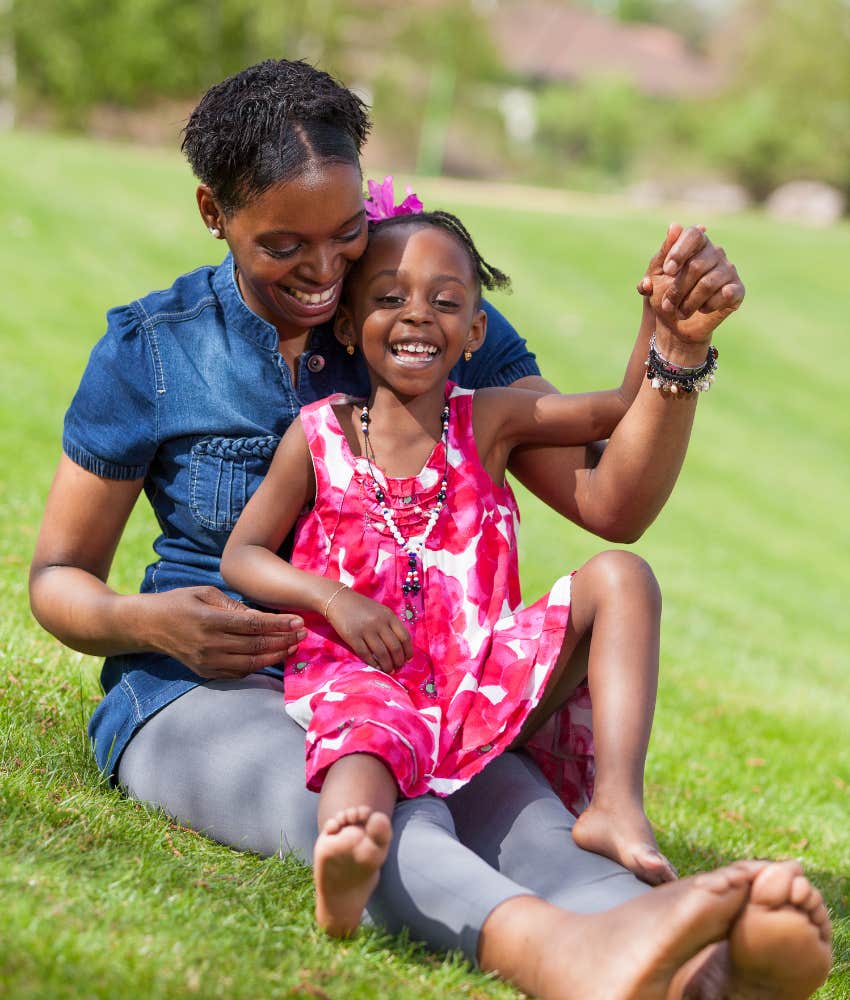Mom Plans To Fix Generational Trauma By Simply Saying Yes To Her Kids' Requests
She wants her kids to feel like they can ask or tell her anything, so when they ask for treats, it's always gonna be a yes.
 pixelheadphoto digitalskillet | Shutterstock
pixelheadphoto digitalskillet | Shutterstock A mom is being applauded for the way she plans to fix generational trauma with her kids. The concept of generational trauma, sometimes referred to as generational curses, has become something of a buzz phrase lately as the "gentle parenting" trend has grown, and today's new parents seek to undo the mistakes of their own parents.
This mom has a plan for how to tackle this with her own baby, and it focuses on the smallest of things that just might have an enormous impact.
The mom said she plans to fix generational trauma by simply saying 'yes' to all her child's requests.
At first blush, it probably sounds like @rexandmo plans to spoil her baby and never tell him no, but there's something much, much deeper to her plan.
If you're like many of us, you probably remember being rebuffed, or maybe even getting in trouble, any time you asked for a toy in the grocery store or a McDonald's dinner as a kid. Especially if you grew up without much money, such requests often exasperate parents, and it's all too easy to take that out on a kid.
But she said that's not how it's going to be in her house. Responding to a call from another TikToker about the "unserious" generational curses people plan to break with their kids, she said, "I got McDonald's money... I got Starbucks money, I got Jordan money, I got book fair money, spirit week money, all that, okay?"
She said she plans not to deprive her baby of anything, from field trips to "$40 in your pocket" to drinking juice with dinner instead of milk. "Drink up," she said, "and if you run out, you can get a refill!"
The mom said this is how she plans to create a 'safe space' for her kids so they'll know they can talk to her and ask her for anything.
The mom also plans to cultivate a sort of equality in her home. As an example, she cited something that has become an institution in most families — separate meals for kids at family gatherings. "If we at a barbecue, just know my kids want a ribeye, too," she said. "No, my kids eat crab legs," she joked.
 Samuel Borges Photography | Shutterstock
Samuel Borges Photography | Shutterstock
And how many of us remember being told "don't worry about it" or "none of your business" any time we asked where our parents were going as kids? This mom said she isn't having any of that either. "If my kids ask me why and where I'm going, I'm going to tell them I'm going to the store, you want to come? Get your shoes on! Yeah! You ain't got to stay home, period."
She said this is all because "when they get older, I want them to tell me everything." She went on to say that she works to apologize to her kids when she messes up and is trying to become a "best friend" to her children — not in the usual way we tend to think of the concept as a lack of boundaries, but in the sense that she wants her kids to feel secure and heard. "This is a safe space around here," she said. "I got you."
Generational trauma can have damaging effects on children, but there are ways to reverse these inherited impacts.
The impacts of generational trauma are wide-ranging, including being one of the main causes of anxiety. And while it may sound like something woo-woo you'd learn in a past-life regression workshop, science says it's entirely real. Scientific studies of many Jewish people, for example, have made the startling finding that the experiences of the Holocaust altered survivors' descendants' actual genes even though they themselves did not experience the Holocaust itself.
The phenomenon, called epigenetic trauma or epigenetic inheritance, can cause conditions like depression and anxiety in children even if they haven't lived through a traumatic event by making a sort of biochemical mark on their genes.
But epigenetic inheritance doesn't happen solely with atrocities like a genocide that was experienced, either. Any big stress experienced by a parent, from the trauma of racism to just getting scolded any time you asked for McDonald's as a kid, like @rexandmo plans not to do with her kids, can be passed on to future generations.
In short, the generational trauma may be "unserious," but the aftermath definitely isn't, and therapists say her instincts when it comes to wanting to fix generational trauma with her kids are good ones.
In the video below, therapist Patrick Teahan said that one of the key ways to break the cycle is to validate kids' perceptions of things and "encourage their inner compass." The perfect example is understanding when they want treats or want to join you on a shopping trip, like she explained.
The mom said her goal was to make her kids feel safe, validated, and like they could come to her to ask or tell her absolutely anything, and it seems like she's right on track. She'll be giving her kids far more than trips to McDonald's and the school book fair. She just might be setting them up for the kind of strength and resilience many of us could only learn in adulthood.
John Sundholm is a writer, editor, and video personality with 20 years of experience in media and entertainment. He covers culture, mental health, and human interest topics.

